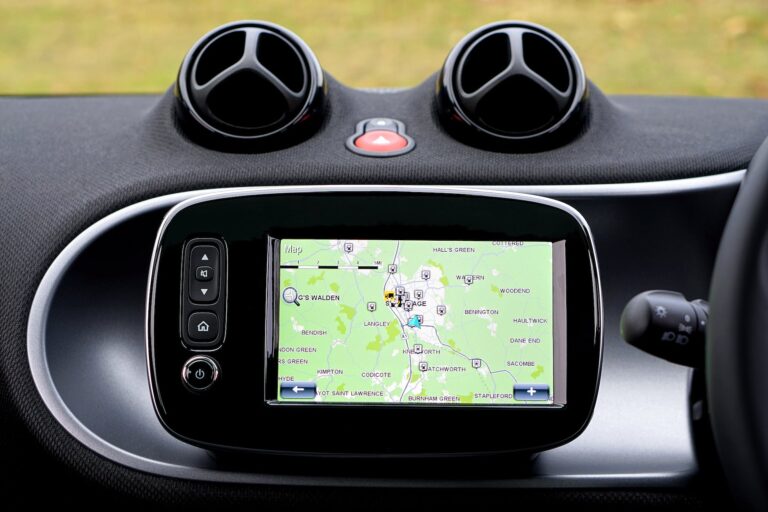The Importance of Efficiency in Auto Dealership Operations
Efficiency plays a significant role in the success of auto dealerships. Operating efficiently not only boosts productivity but also enhances customer satisfaction and profitability. In this section, we will explore why efficiency matters for auto dealers and the challenges they face in their operations.
Why Efficiency Matters for Auto Dealers
Efficiency is crucial for auto dealerships as it directly impacts their bottom line. Here are a few key reasons why efficiency is essential:
-
Cost Savings: Efficient operations can help dealerships save money by reducing unnecessary expenditures and optimizing resources. Streamlining processes such as inventory management, sales tracking, and finance operations can lead to cost savings in the long run.
-
Improved Customer Experience: Efficient operations enable dealerships to provide a better customer experience. From the moment a customer walks into the showroom to after-sales service, smooth and efficient processes contribute to a positive impression and build customer loyalty.
-
Competitive Advantage: In a competitive market, efficient dealerships have an edge over their competitors. By minimizing delays, errors, and inefficiencies, dealerships can gain a reputation for reliability, professionalism, and prompt service.
-
Increased Productivity: Efficiency allows dealerships to accomplish more in less time. By automating manual tasks and implementing streamlined processes, employees can focus on high-value activities, such as building customer relationships and closing sales.
Challenges Faced by Auto Dealerships
Auto dealerships face various challenges that hinder their efficiency and profitability. Some common challenges include:
-
Complex Operations: Auto dealerships have multiple departments, including sales, finance, service, and parts. Coordinating these departments and ensuring smooth collaboration can be challenging, especially without the right systems in place.
-
Data Management: Dealerships handle vast amounts of data, including customer information, inventory details, and financial records. Managing and maintaining this data can be time-consuming and prone to errors if not properly organized.
-
Compliance and Reporting: Auto dealerships must comply with various regulations and reporting requirements, such as financial reporting, tax filings, and industry-specific regulations. Ensuring accurate and timely compliance can be demanding without efficient systems and processes.
-
Inventory Management: Managing inventory is a critical aspect of dealership operations. Balancing stock levels, tracking vehicles, and ensuring proper maintenance can be complex and time-sensitive. Effective inventory management systems are essential to optimize stock levels and minimize carrying costs.
By understanding the importance of efficiency and identifying the challenges faced, auto dealerships can explore solutions to streamline their operations. Dealer management software solutions provide a comprehensive approach to address these challenges and enhance efficiency in various aspects of dealership operations, from sales and inventory management to finance and accounting processes. In the following sections, we will delve into the details of these solutions and how they can benefit auto dealerships.
Introduction to Dealer Management Software Solutions
In the fast-paced world of auto dealerships, efficiency is key to success. To streamline operations and optimize performance, many dealerships are turning to Dealer Management Software (DMS) solutions. This section will provide an overview of what dealer management software entails and the key features and benefits associated with these solutions.
What is Dealer Management Software?
Dealer Management Software (DMS) is a comprehensive software solution designed specifically for auto dealerships. It serves as a centralized system that integrates various aspects of dealership operations into one platform. From sales and inventory management to finance and accounting, service and repair operations, and marketing and lead generation, a DMS offers a wide range of functionalities to support and enhance dealership operations.
A dealer management software acts as a digital backbone for auto dealerships, providing a streamlined and efficient way to manage day-to-day tasks and processes. By automating and integrating various functions, a DMS allows dealerships to operate more effectively, save time, reduce errors, and improve overall productivity.
Key Features and Benefits of Dealer Management Software
Dealer management software offers a multitude of features and benefits that help auto dealerships optimize their operations. Some of the key features and benefits include:
-
Sales Tracking and Customer Relationship Management (CRM): A DMS enables dealerships to track sales activities, manage customer information, and streamline the sales process. With a comprehensive CRM module, dealerships can efficiently manage leads, track customer interactions, and improve customer satisfaction.
-
Inventory Management and Vehicle Tracking: A DMS provides real-time visibility into inventory, allowing dealerships to effectively manage vehicle stock, track vehicle details, and monitor vehicle movement. This helps dealerships optimize inventory levels, reduce holding costs, and streamline vehicle tracking processes.
-
Streamlining Finance and Accounting Operations: A DMS automates finance and accounting processes, including invoicing, purchase orders, accounts payable, and financial reporting. By eliminating manual data entry and streamlining these operations, dealerships can save time, reduce errors, and improve financial accuracy and compliance.
-
Service Scheduling and Work Order Management: A DMS simplifies service scheduling and work order management, allowing dealerships to efficiently allocate resources, schedule appointments, and track service progress. This helps improve service efficiency, reduce customer wait times, and enhance overall service quality.
-
Parts and Inventory Management: A DMS includes features for parts and inventory management, enabling dealerships to effectively manage stock levels, track parts usage, and streamline the ordering process. This helps reduce inventory holding costs, prevent stockouts, and improve parts availability for service and repair operations.
By adopting a dealer management software solution, auto dealerships can achieve significant operational improvements, streamline processes, and enhance overall efficiency. It’s essential for dealerships to carefully consider their specific requirements and choose a DMS that aligns with their needs. For factors to consider when selecting a dealer management software solution, refer to our article on dealership marketing strategies.
In the following sections, we will delve deeper into each aspect of dealership operations that can be streamlined with the help of a dealer management software solution. From sales and inventory management to finance and accounting, service and repair operations, and marketing and lead generation, a DMS offers a comprehensive solution to drive efficiency and success in auto dealership operations.
Streamlining Sales and Inventory Management
Efficient sales and inventory management are crucial for the success of any auto dealership. By streamlining these processes, dealerships can optimize their operations, improve customer satisfaction, and increase profitability. In this section, we will explore two key aspects of sales and inventory management: sales tracking and customer relationship management (CRM), and inventory management and vehicle tracking.
Sales Tracking and Customer Relationship Management (CRM)
Effectively tracking sales and managing customer relationships is essential for auto dealerships. Dealer management software solutions provide robust CRM tools that enable dealers to track leads, manage customer information, and streamline the sales process.
With the help of a CRM system, dealerships can capture and organize customer data, such as contact information, preferences, and purchase history. This information allows sales teams to personalize their interactions, provide better customer service, and nurture leads throughout the sales cycle. By leveraging CRM capabilities, dealerships can improve customer satisfaction and build long-term relationships, leading to increased customer loyalty and repeat business.
Additionally, CRM systems integrated with dealer management software can automate various sales-related tasks, such as follow-ups, appointment scheduling, and lead nurturing. These automation features help sales teams stay organized, improve response times, and focus on building meaningful connections with potential buyers.
Inventory Management and Vehicle Tracking
Effective inventory management is crucial for auto dealerships to optimize their operations and maximize profitability. Dealer management software solutions offer comprehensive inventory management features that simplify the process of tracking, managing, and selling vehicles.
With inventory management tools, dealerships can efficiently track vehicle details, such as make, model, VIN, mileage, and pricing information. These systems enable dealers to easily locate and showcase vehicles to potential buyers, ensuring accurate and up-to-date inventory listings.
Moreover, dealer management software solutions often provide vehicle tracking capabilities. These features allow dealerships to monitor vehicle movements, including test drives and service appointments. By having real-time visibility into vehicle whereabouts, dealerships can streamline operations, enhance security, and improve overall efficiency.
By utilizing dealer management software solutions to streamline sales and inventory management processes, auto dealerships can enhance productivity, increase customer satisfaction, and improve their bottom line. Remember to consider factors such as integration capabilities, ease of use, and reporting capabilities when selecting the right dealer management software solution for your dealership. For more information on improving dealership performance, check out our article on improving dealership performance.
Simplifying Finance and Accounting Processes
Efficient finance and accounting operations are essential for the smooth functioning of an auto dealership. By streamlining finance and accounting processes through the use of dealer management software solutions, dealerships can save time, reduce errors, and ensure compliance with financial regulations. In this section, we will explore two key aspects of simplifying these processes: streamlining finance and accounting operations and automating reporting and compliance.
Streamlining Finance and Accounting Operations
Dealer management software solutions offer a range of features to streamline finance and accounting operations. These software solutions can automate various tasks, such as invoicing, accounts payable, accounts receivable, and general ledger management. By automating these processes, dealerships can eliminate manual data entry and reduce the risk of errors.
Additionally, dealer management software provides real-time visibility into financial transactions and cash flow. This allows dealerships to monitor their financial health and make informed decisions based on accurate data. With features like automated bank reconciliation and expense tracking, financial management becomes more efficient and transparent.
By integrating the finance and accounting functions into a centralized system, dealer management software eliminates the need for multiple software systems or manual spreadsheets. This not only saves time but also improves data accuracy and reduces the chances of duplicate entries.
Automating Reporting and Compliance
Compliance with financial regulations and reporting requirements is crucial for auto dealerships. Dealer management software solutions simplify this process by automating reporting and ensuring compliance. These software solutions generate financial reports, such as balance sheets, income statements, and cash flow statements, with just a few clicks. These reports provide a comprehensive overview of the dealership’s financial performance and help in making informed business decisions.
Moreover, dealer management software solutions can generate compliance reports required by regulatory bodies, such as tax authorities. By automating these reporting tasks, dealerships can save time and reduce the risk of errors or penalties associated with non-compliance.
With the ability to integrate with other systems, dealer management software makes it easier to share financial data with accountants or other stakeholders. This streamlines the communication process and ensures that everyone has access to accurate and up-to-date financial information.
By simplifying finance and accounting processes and automating reporting and compliance, dealer management software solutions contribute to the overall efficiency and profitability of auto dealerships. These software solutions provide a centralized platform for managing financial transactions, reducing manual work, and improving data accuracy. Dealerships can focus on their core operations and make informed financial decisions, ultimately enhancing their business performance.
For more information on improving dealership operations and profitability, check out our articles on dealership marketing strategies and increasing dealership profitability.
Enhancing Service and Repair Operations
Efficient service and repair operations are crucial for the success of an auto dealership. To streamline these processes and ensure customer satisfaction, auto dealers can leverage dealer management software solutions. Two key areas where dealer management software can enhance service and repair operations are service scheduling and work order management and parts and inventory management.
Service Scheduling and Work Order Management
Dealer management software offers robust tools for service scheduling and work order management, helping auto dealers optimize their service operations. With these features, dealerships can efficiently manage customer appointments, assign technicians, and track the progress of service tasks.
By utilizing the software’s service scheduling capabilities, dealerships can effectively manage the influx of customer requests, ensuring that appointments are evenly distributed and technicians are utilized efficiently. This helps minimize wait times and ensures a smooth flow of service operations.
Additionally, the work order management functionality allows dealerships to create and track work orders for each service task. This includes recording customer information, vehicle details, service requirements, and any special instructions. The software provides a centralized system where technicians can access and update work orders, ensuring clear communication and streamlined workflow.
Parts and Inventory Management
Effective parts and inventory management is essential to avoid delays in service and repair operations. Dealer management software simplifies this process by providing comprehensive tools for tracking and managing parts and inventory.
With the software’s inventory management features, dealerships can accurately track the availability of parts, ensuring that the necessary components are in stock when needed. This helps prevent delays in completing service tasks and minimizes customer dissatisfaction.
The software also enables dealerships to automate the reordering process, ensuring that stock levels are maintained without manual intervention. By setting up reorder points and inventory thresholds, the software can generate purchase orders for replenishing parts and streamlining the procurement process.
Furthermore, dealer management software helps categorize and organize parts, making it easier for technicians to locate and retrieve the required components. This improves efficiency and reduces the time spent searching for specific parts.
By utilizing dealer management software for service and repair operations, auto dealerships can streamline their processes, improve customer satisfaction, and enhance overall efficiency.
To learn more about dealership strategies and best practices, check out our articles on dealership marketing strategies and auto dealer best practices. Additionally, if you’re interested in improving your dealership’s inventory turnover, our article on auto dealer inventory turnover provides valuable insights.
Maximizing Marketing and Lead Generation
In the highly competitive world of auto dealership, effective marketing and lead generation strategies are crucial for success. Dealer management software solutions play a vital role in maximizing these efforts. Let’s explore two key aspects: integrated marketing campaigns and lead generation and tracking.
Integrated Marketing Campaigns
Integrated marketing campaigns allow auto dealerships to reach their target audience through various channels, ensuring a consistent and cohesive message. Dealer management software solutions provide tools and features to streamline and enhance these campaigns.
By leveraging customer data stored in the software, dealerships can create targeted marketing campaigns tailored to specific customer segments. This includes personalized email marketing, direct mail campaigns, and digital advertising. The software also enables the automation of marketing tasks, saving time and effort while ensuring consistent branding across all channels.
It’s important to note that successful integrated marketing campaigns require a deep understanding of the target audience, market trends, and effective messaging strategies. For more information on dealership marketing strategies, check out our article on dealership marketing strategies.
Lead Generation and Tracking
Generating high-quality leads is essential for auto dealerships to thrive. Dealer management software solutions offer robust lead generation and tracking capabilities to help dealerships identify potential customers and track their journey through the sales funnel.
These software solutions enable dealerships to capture leads from various sources, such as website inquiries, walk-ins, and test drives. The software consolidates these leads into a centralized database, allowing for efficient lead management and follow-up.
Furthermore, the software provides analytics and reporting features to track the effectiveness of lead generation campaigns. Dealerships can measure key metrics like conversion rates, lead response time, and lead source performance. This data-driven approach helps dealerships optimize their lead generation strategies and allocate resources effectively. For more tips on improving lead generation and dealership performance, take a look at our article on improving dealership performance.
To maximize marketing and lead generation efforts, auto dealerships can leverage the power of dealer management software solutions. These solutions offer the tools and insights needed to execute integrated marketing campaigns and track leads effectively. By implementing these strategies, dealerships can enhance their visibility, attract qualified leads, and ultimately increase their chances of success in a competitive market.
Considering the Right Dealer Management Software Solution
When it comes to choosing the right dealer management software for your auto dealership, there are several factors to consider. Making an informed decision will not only streamline your operations but also improve efficiency and maximize profitability. Here are some important factors to keep in mind:
Factors to Consider in Choosing Dealer Management Software
-
Scalability: Consider the scalability of the software solution. Will it be able to handle the growth of your dealership? Look for a solution that can accommodate your expanding business needs, whether it’s managing a larger inventory, handling more customers, or integrating with other systems.
-
Integration: Evaluate how well the software integrates with your existing systems. Seamless integration with your CRM, accounting software, and other key systems can save time and reduce errors by eliminating the need for manual data entry.
-
User-Friendliness: Ensure that the software is intuitive and user-friendly. A complex and difficult-to-navigate interface can lead to frustration and hinder productivity. Look for a solution that provides a user-friendly interface and requires minimal training for your staff.
-
Customization: Assess the level of customization offered by the software. Every dealership has unique requirements, so it’s important to choose a solution that allows you to tailor it to your specific needs. Customizable features and workflows can enhance efficiency and align with your dealership’s processes.
-
Customer Support: Consider the level of customer support provided by the software provider. Timely and reliable support is essential to address any issues or concerns that may arise during implementation or daily use. Look for a provider that offers responsive customer support through various channels.
Common Mistakes to Avoid
While choosing a dealer management software solution, it’s important to avoid common mistakes that can hinder your dealership’s operations and success. Here are some mistakes to steer clear of:
-
Failure to Define Your Needs: Before selecting a software solution, clearly define your dealership’s needs and goals. Assess your current workflows, pain points, and areas for improvement. Without a clear understanding of your requirements, you may end up with a solution that doesn’t address your specific challenges.
-
Overlooking Training and Support: Don’t underestimate the importance of training and support. Inadequate training can result in underutilization of the software and prevent you from maximizing its benefits. Ensure that the software provider offers comprehensive training and ongoing support to help your team effectively utilize the solution.
-
Ignoring Integration Capabilities: Integration with other systems is crucial for seamless operations. Ignoring integration capabilities can lead to data silos and manual workarounds, which can be time-consuming and error-prone. Choose a software solution that offers robust integration options to streamline your dealership’s processes.
-
Focusing Solely on Price: While cost is an important factor, don’t make the mistake of solely focusing on price. Cheaper solutions may lack essential features or support, leading to inefficiencies and frustrations down the line. Consider the overall value and benefits the software provides to your dealership.
By considering these factors and avoiding common mistakes, you can select a dealer management software solution that aligns with your dealership’s needs and sets you up for success. Remember to evaluate the software’s scalability, integration capabilities, user-friendliness, customization options, and customer support to make an informed decision.






